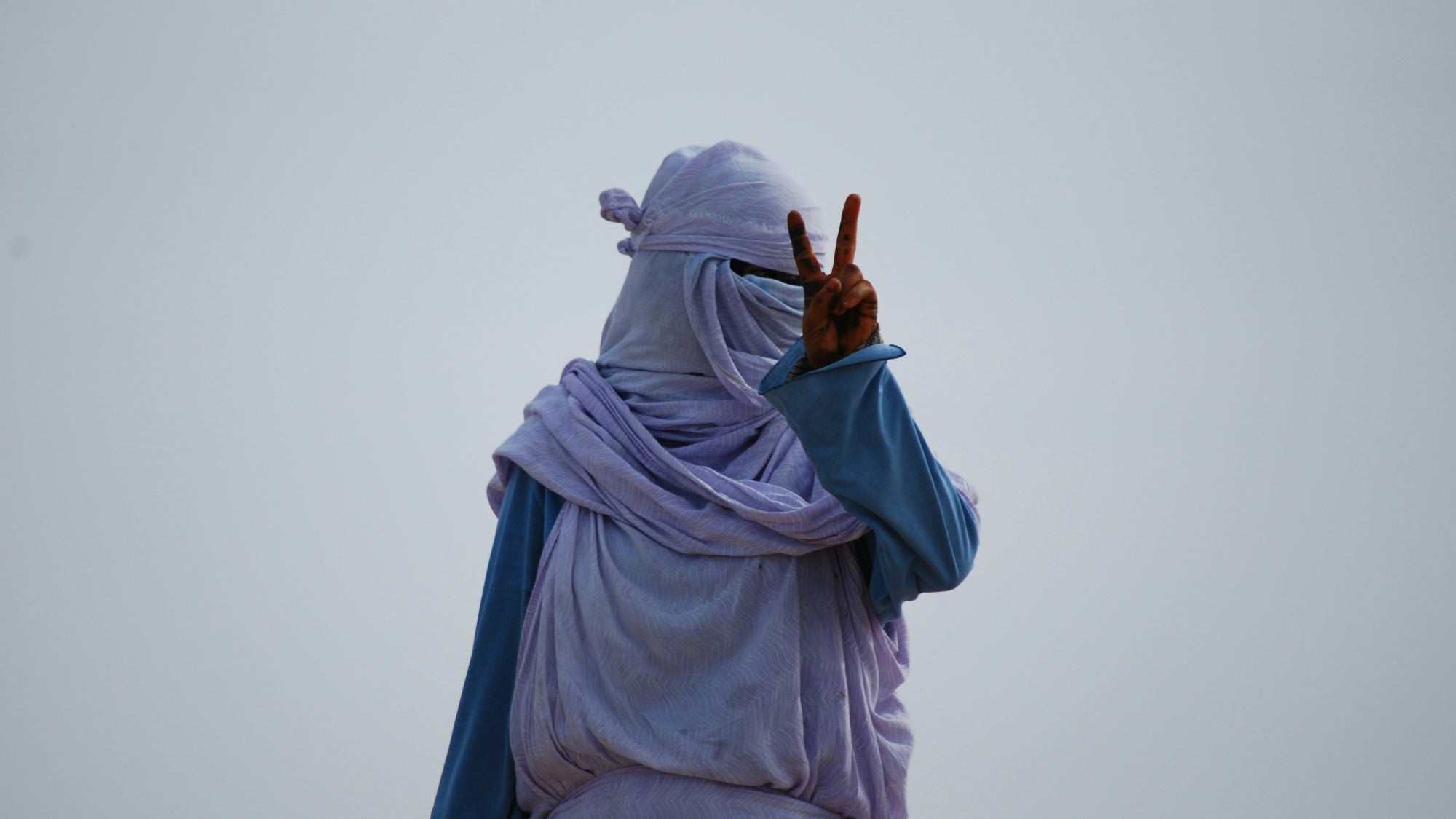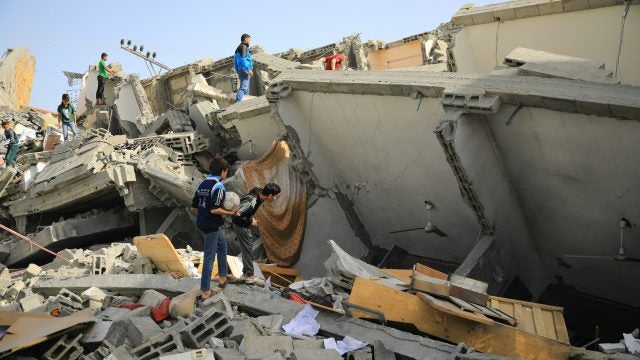
Title: Gender Apartheid as an International Crime: Taliban Oppression in Afghanistan Triggers Campaign
The escalating women’s rights crisis in Afghanistan demonstrates a gap in international legal protections of the rights of women and girls. The international community should fill this gap by making gender apartheid a crime against humanity under international law. They have a unique opportunity to do so by pushing for an amendment to the draft crimes against humanity treaty that is being negotiated at the United Nations General Assembly through a process that formally begins in January 2026.
Introduction
It has now been four years since what Afghans call “the fall.” On August 15, 2021, Taliban fighters swept into Afghanistan’s capital, Kabul, hours after the country’s president fled, cementing their control of the country. Their assault on the rights of women and girls followed immediately.
The Taliban quickly banned education beyond sixth grade for women and girls and imposed harsh restrictions on women’s paid employment, including by aid agencies. In some sectors, women’s employment was banned outright.
Freedom of movement, even to seek health care, was severely restricted; taxi and bus drivers faced pressure to not allow women to travel alone. Women were pulled off a plane as they tried to leave the country for treasured overseas scholarships. The Taliban imposed arbitrary and restrictive dress codes, enforced by arrest, and women often encounter abuse simply for leaving home without a male family member chaperone. Everyday activities—going to the park or a beauty salon, playing a sport or going to the gym—were quickly prohibited.
Over time the Taliban crackdown has become even more draconian, often in ways that would seem absurd if the harm was not so grave. Directives banned women’s voices from being heard in public, ordered women not to sing, and commanded the removal of windows through which women, imprisoned in their homes, might see the outside world.
The situation in Afghanistan is the most serious women’s rights crisis in the world. An inadequate international response poses grave dangers to the rights of women and girls everywhere. It signals to other armed groups and governments that wholesale attacks on women’s rights will meet little resistance by the international community. It accepts a drastic lowering of the bar on what level of dehumanization of women and girls can be tolerated and even seen as normal.
International Response
While the walls closed in on women and girls in Afghanistan, the rest of the world seemed to move on. As media attention shifted to the hostilities in Ukraine and Gaza, Afghan women and girls have felt increasingly erased, not only from their communities but from the eyes of the world.
While governments look away, the Taliban have quietly achieved many of their diplomatic goals. Taliban officials fly around the world and are welcomed at high–level meetings. Afghanistan’s embassies have increasingly been handed over to the Taliban, leaving just a handful of holdover diplomats from the former government. Influential countries friendly to the Taliban, including China and Pakistan have made significant moves toward legitimizing their rule, and Russia became the first country to formally recognize the Taliban government in July 2025.
Afghan women’s rights defenders, especially those inside the country, are facing increasing difficulties; the Taliban’s crackdown on any signs of dissent are steadily intensifying at the same time that the world looks away. Slashed donor funding, especially from the United States, has also taken essential resources from women’s groups that were still working to support women inside the country. Shortly after the takeover, women began marching in the streets of Afghan cities, protesting the Taliban’s crackdown on women and girls. The Taliban responded with violence, arbitrary detention, and torture, and the protests largely moved online. Women’s voices were still raised, but harder to hear. Even online protests could trigger a brutal Taliban response, with the significant resources devoted to tracking down and arresting anyone they can identify as speaking out.
Moreover, the allies Afghan women’s rights defenders previously counted on were sometimes the source of painful betrayal. The United Nations facilitates the so-called “Doha process”—built on a 2023 road map for resolving the crisis in Afghanistan—including three international meetings. However, the UN excluded women from those meetings, failing to comply with UN Security Council resolution 1325, which calls for women’s “equal participation and full involvement in all efforts for the maintenance and promotion of peace and security.” Criticism of the Doha process peaked in June 2024 when the UN, seeking the Taliban’s attendance at the Doha 3 meeting, not only excluded women but also left human rights off the agenda. In the wake of the Doha 3 meeting, the Taliban appeared emboldened, issuing their most comprehensive decree yet policing women, and banning the UN Special Rapporteur on the human rights situation in Afghanistan from entering the country.
Apartheid and its Application to Gender
Since the Taliban’s first rule over Afghanistan from 1996 to 2001, many Afghan women have used the term “gender apartheid” to describe Taliban abuses. In 1999, Abdelfattah Amor, then UN special rapporteur on the elimination of intolerance and all forms of discrimination based on religion or belief, wrote that “the Taliban has introduced…a system of apartheid in respect of women.”
The term apartheid has its origins in South Africa, where white supremacist colonial governments brutally imposed a system of segregation and oppression. Where you could live and work, where you could study and what you were permitted to learn, and how you could—or could not—move about was prescribed based on race. Discriminatory policies were imposed against people not categorized as white, with the worst abuses inflicted on people designated as black.
International law often develops in response to horrific situations; the abuses in South Africa have had a long-term impact on international law. International outcry led, in 1973, to states adopting the International Convention on the Suppression and Punishment of the Crime of Apartheid, which defined apartheid as a universal crime against humanity. In 1998, states adopted the Rome Statute, establishing the International Criminal Court. The Rome Statute includes apartheid, labeling it a crime against humanity defined as “inhumane acts…committed in the context of an institutionalized regime of systematic oppression and domination by one racial group over any other racial group or groups and committed with the intention of maintaining that regime.”
Apartheid is a crime applicable only under a very specific set of circumstances, and there have been only a few situations in which it has been invoked. The definitions of apartheid set a high threshold for what acts can constitute this crime, reflected in the sparing use of these laws. There has yet to be a single completed prosecution of the crime of apartheid anywhere in the world.
The Rome Statute’s requirement of an institutionalized regime and the intent to maintain such a regime distinguishes it from the crime against humanity of persecution, defined by the Rome Statute as “the intentional and severe deprivation of fundamental rights contrary to international law by reason of the identity of the group or collectivity.”
Gender Apartheid as an International Crime
Since the Taliban regained power in Afghanistan, their abuses against women and girls have driven a renewed discussion about gender apartheid, which seeks to create gender-based apartheid as a crime against humanity in an international treaty. Afghan women’s rights defenders argue that the Taliban’s systematic and structural violations of the rights of all women and girls are of the same character and gravity as the acts of apartheid criminalized under the Rome Statute, with the sole difference being that Taliban crimes are based on gender rather than race. They make a persuasive case that creating an international crime of gender apartheid is necessary to fill a gap in international law as it relates to women’s rights and permit accountability for the totality of crimes committed based on gender.
This is a unique and time-bound opportunity to incorporate the crime of gender apartheid into international law through the draft crimes against humanity treaty that is being negotiated at the UN General Assembly. Eleven states have already signaled interest in discussing the inclusion of gender apartheid, while other states have pledged support behind closed doors. All states should support this crucial call by Afghan women for women around the world.
Making gender apartheid a crime will not provide a quick fix for the women and girls of Afghanistan. The treaty process is scheduled to take four years and could stretch longer or break down entirely. It might produce a treaty that does not include gender apartheid, and even if it did, it would not apply retroactively. But Afghan women’s rights defenders have consistently called for three things. First, they want women to have full, safe, equal and meaningful participation in all discussions about Afghanistan’s future, as per UN Security Council resolution 1325. Second, they demand that the Taliban not be recognized as the legitimate government of Afghanistan. And third, they want the Taliban held accountable for their abuses against women and girls.
On this third point—accountability—the call for recognition of gender apartheid as a crime under international law is one of several advocacy efforts. Others call for support for prosecutions for gender persecution and other crimes at the International Criminal Court; a civil case brought by states at the International Court of Justice; and establishment of a UN-mandated mechanism to collect and preserve evidence of crimes committed in Afghanistan.
But the gender apartheid campaign has captured the passion of many Afghan activists. Leaders of Afghanistan’s women’s right movement have repeatedly echoed the view one shared with me: “There are many things Afghan women’s rights defenders disagree on, but one on which we all agree—that we all want gender apartheid to be a crime.”
Conclusion
While making gender apartheid an international crime, let alone applying that law to the situation in Afghanistan, are long-term possibilities, the effort brings immediate benefits. Starting serious work to make gender apartheid an international crime signals to the Taliban, armed groups, and governments everywhere that women’s rights are not forgotten in today’s world and that gendered crimes will be punished. It can give women and girls suffering unimaginably under Taliban rule a sense that they are not forgotten and can hope for justice someday.
Azadah Raz Mohammed, an Afghan lawyer, referred to gender apartheid when she briefed the Security Council in March 2025. “No term better describes the crimes the Taliban are committing against Afghan women and girls,” she said. “And we will never forget the states standing with us in this effort.”
States should stand in solidarity with the Afghan women who are risking everything to fight for their rights. They should take the opportunity presented by the negotiations over a new UN crimes against humanity treaty and make gender apartheid an international crime against humanity.
. . .
Heather Barr is associate women’s right director at Human Rights Watch. She has worked on women’s rights in Afghanistan for 18 years, spending many of those years inside the country.
Image Credit: Francisco Fernandez, Unsplash Content License, via Unsplash.
Recommended Articles

From the 1960s to the 1990s, the Danish government implemented the “Spiral Campaign,” a family planning policy that fitted four thousand and five hundred Inuit women and girls—many underage—with intrauterine…

This piece examines the UK government’s proscription of Palestine Action under the Terrorism Act, situating it within a broader trend of shrinking space for public dissent. It argues that the…

This article analyses the distortions of the International Humanitarian Law (IHL) notion of proportionality in the context of the Israel-Gaza war. It discusses Israel’s attempts to reinterpret proportionality to justify…